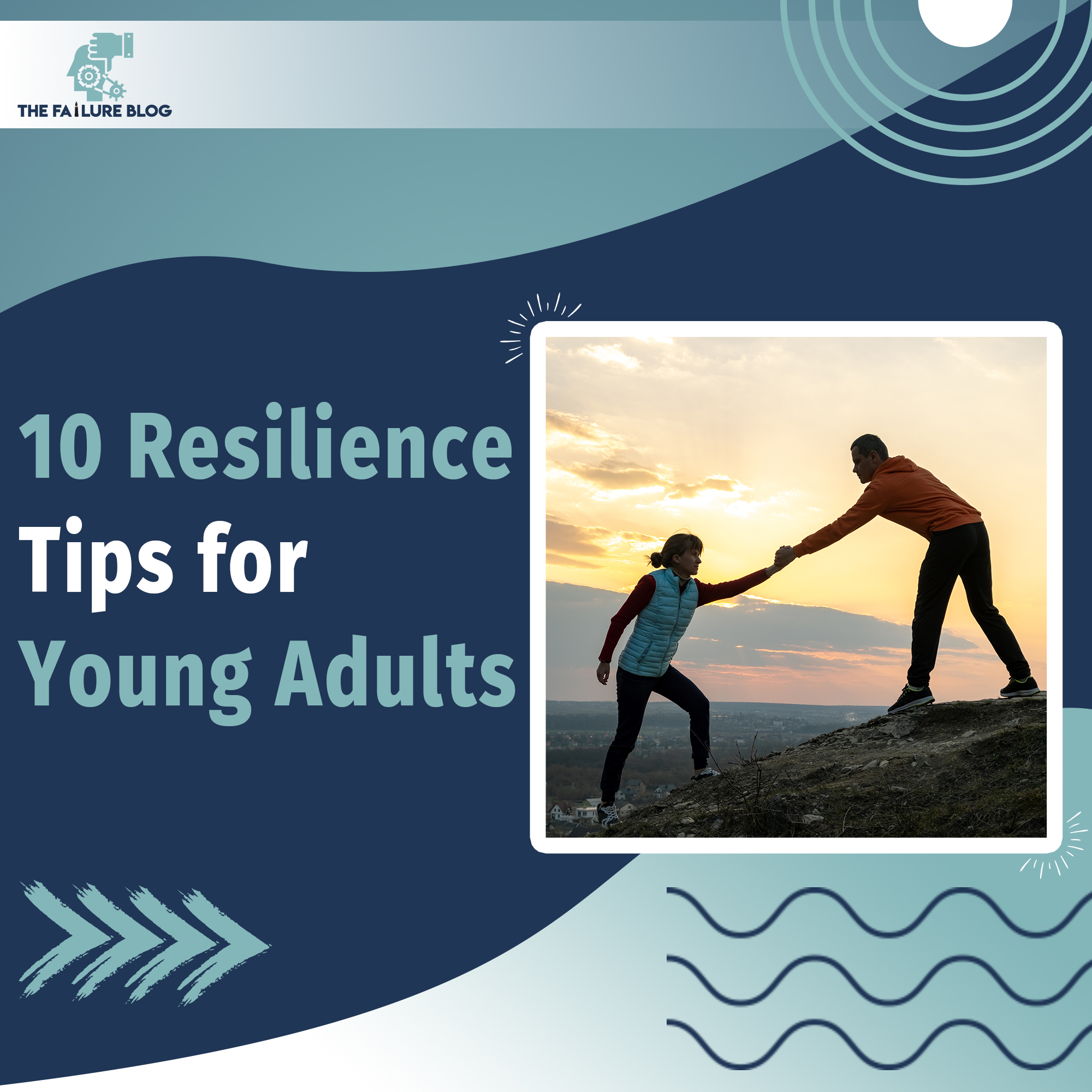
Navigating the transition from adolescence to adulthood is a journey filled with opportunities, challenges, and moments of self-discovery. As young adults, you’re stepping into a world where the stakes are higher, and the pressures can feel overwhelming. Whether it’s managing the demands of higher education, starting a new career, or juggling personal relationships, life can present obstacles that test your endurance and spirit
It’s during these formative years that building a foundation of resilience becomes crucial. Resilience isn’t just about bouncing back from difficulties; it’s about developing the ability to adapt, learn, and grow stronger in the face of adversity. This ability to navigate life’s challenges with confidence and poise can significantly impact your overall well-being and success.
So, how can you cultivate this vital skill? Fortunately, there are practical steps you can take to enhance your resilience. In this article, we’ll explore ten effective strategies designed to help you build resilience and handle life’s ups and downs more effectively. From fostering a positive mindset to managing stress and seeking support, these tips will provide you with the tools to navigate your journey with greater strength and clarity.
1. Embrace a Growth Mindset
A growth mindset is the belief that you can improve your abilities through dedication and hard work. This mindset is crucial for resilience because it helps you view challenges as opportunities for growth rather than insurmountable obstacles. For example, if you find yourself struggling with a new skill, instead of giving up, approach it as a chance to learn. Break down the skill into smaller, manageable parts and tackle them one by one. Celebrate each small victory along the way. Adopting this mindset can make even the toughest challenges seem more manageable.
2. Build Strong Connections
Strong relationships provide a vital support system during difficult times. Building and maintaining connections with friends, family, and mentors can offer you the emotional support and practical advice needed to overcome challenges. Engage in activities that foster these connections, such as joining clubs, participating in community events, or seeking out a mentor. Don’t hesitate to reach out to others for support when you need it; building a network of trusted individuals can provide you with invaluable resources and encouragement.
3. Practice Self-Care
Self-care is an essential aspect of maintaining resilience. Taking time to care for your physical, emotional, and mental well-being can enhance your ability to cope with stress. Regular exercise, a balanced diet, and sufficient sleep are foundational to good self-care. Additionally, incorporating relaxation techniques like mindfulness and meditation can help manage stress. By prioritizing self-care, you ensure that you’re physically and mentally prepared to tackle life’s challenges.

4. Learn to Manage Stress
Effective stress management is crucial for resilience. Stress is a natural part of life, but how you handle it can make a big difference. Develop stress-management techniques such as deep breathing exercises, progressive muscle relaxation, or engaging in hobbies you enjoy. Time management skills can also help you juggle responsibilities and reduce stress. By proactively managing stress, you can maintain your emotional balance and tackle problems with a clearer mind.
5. Set Realistic Goals
Setting and achieving realistic goals can significantly boost your confidence and resilience. Break down your larger goals into smaller, achievable steps, and focus on making consistent progress. Use the SMART criteria—Specific, Measurable, Achievable, Relevant, and Time-bound—to set goals that are practical and attainable. Celebrating each milestone along the way can provide motivation and a sense of accomplishment, reinforcing your ability to overcome obstacles.
6. Cultivate Problem-Solving Skills
Developing strong problem-solving skills is vital for overcoming challenges. Start by breaking problems into smaller, more manageable parts and brainstorming possible solutions. Practice thinking critically and evaluating the pros and cons of different approaches. Learning to approach problems methodically and creatively can enhance your ability to tackle complex situations and adapt to new challenges.
7. Develop a Positive Outlook
A positive outlook can greatly impact your resilience. Focusing on the positive aspects of a situation, rather than dwelling on negatives, can help you maintain motivation and perspective. Techniques such as gratitude journaling, where you regularly write down things you’re thankful for, can shift your focus to the positive aspects of life. Positive affirmations and visualizing successful outcomes can also help reinforce a constructive mindset.

8. Learn from Failures
Viewing failures as learning opportunities rather than setbacks is a powerful way to build resilience. When you encounter a failure, take the time to reflect on what went wrong and what you can learn from the experience. This reflection can help you identify areas for improvement and apply these lessons to future challenges. Remember, every failure is a step toward success if you use it as a learning experience.
9. Seek Professional Help When Needed
Sometimes, challenges can feel overwhelming, and seeking help from mental health professionals is a crucial step toward building resilience. Mental health experts can provide guidance, support, and coping strategies tailored to your individual needs. If you find yourself struggling with persistent feelings of stress, anxiety, or depression, don’t hesitate to seek professional help. Reaching out is a sign of strength, not weakness, and can provide you with the tools you need to navigate tough times.
10. Practice Flexibility
Flexibility and adaptability are essential components of resilience. Life is unpredictable, and being able to adjust to new circumstances and embrace change can help you navigate challenges more effectively. Practice being open to new experiences and solutions, and don’t be afraid to pivot when things don’t go as planned. Embracing change with a positive attitude can help you stay resilient in the face of adversity.
Conclusion
Building resilience is a journey, not a destination. By incorporating these 10 tips into your life, you can strengthen your ability to handle challenges and bounce back from adversity. Remember, resilience is about growth and adaptation. Start applying these strategies today and watch as your ability to face life’s ups and downs becomes stronger and more effective.





Leave a Reply